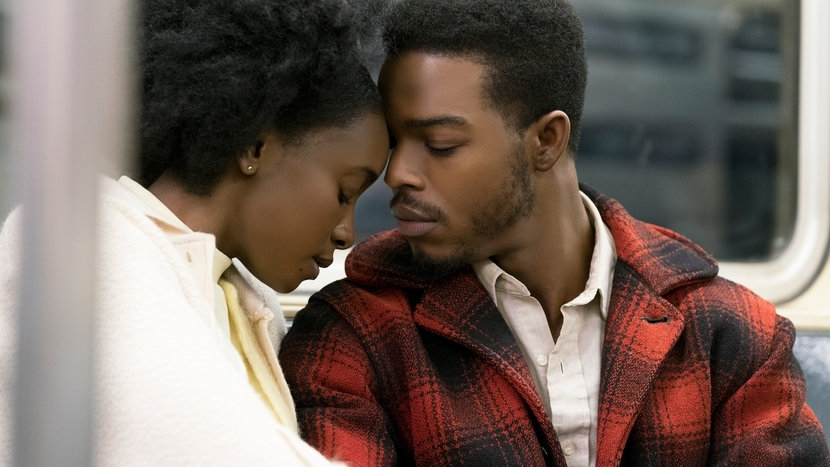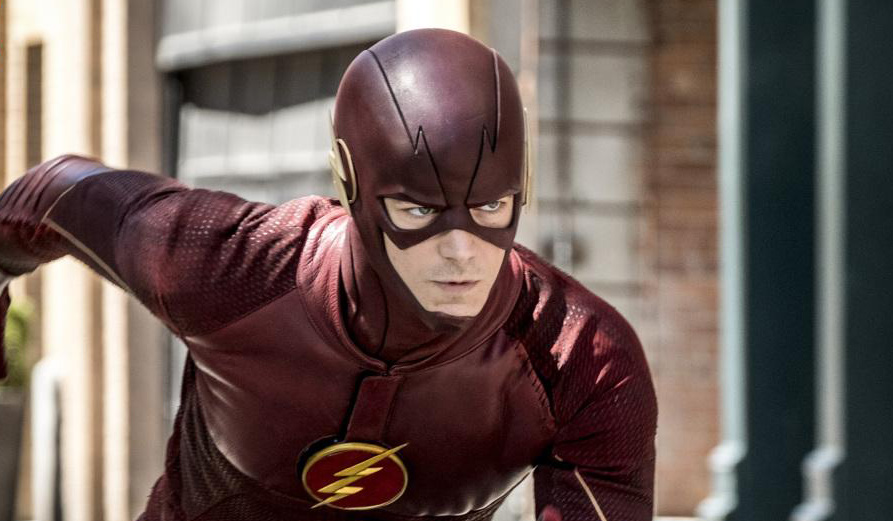If Beale Street Could Talk – BFI London Film Festival Review

On the back of Moonlight, Barry Jenkins has become a must-see filmmaker. His follow-up film, If Beale Street Could Talk takes a James Baldwin novel and mounts it on the big screen. A romance set on the backdrop of a corrupt justice system and broken police force manages to retain the beauty, tenderness and besotted love of its two central characters. If Beale Street Could Talk retains our anger towards a systematic effort to break down an integral part of American society, but it tells a story of strength that only the most devoted could withstand.
If Beale Street Could Talk begins with Fonny (Stephan James) and Tish (KiKi Layne), holding hands and walking together in a similar outfit of mustard yellow and deep blue. A lush, romantic stringed score (another impressive turn from Nicholas Britell) plays over their stroll as the camera gently tracks them, moving around and above the untouchable intimacy of such an everyday moment. This cuts to a brief, but important, exchange between Fonny and Tish when a glass wall separates them in a prison visitor room. Tish tells him that she is pregnant and, despite being 19 herself and him at 22, this is an exciting prospect as Fonny is innocent and will be released. The families are told and we see the relationship in the early stages, when the two lovers as children shared a bath and playfully put suds on each other’s head. The moment she realised she loved him – and he loved her. When they first recognised they would be together for the rest of lives. When they made love for the first time and broke bread with friends, hinting at such a warm, happy family in the future. But there is a reason Fonny is in prison and, through gritted teeth, we see the awful injustice that has placed him there. An act of indifference and thoughtlessness by others has a consequence that will irreversibly affect these beautiful people, and their families, for their entire life. At two points, Jenkins intercuts black and white photographs of the poverty and desperation that has plagued the African-American experience in their home country. Rooting If Beale Street Could Talk in history takes a single story and multiplies it by the many, many more who suffered at the hands of an unjust criminal court. KiKi Layne provides a narration that is as poetic and affecting as James Baldwin’s writing, ensuring that this intimate and personal story is not perceived as a one-off or work of fiction. The struggle and conflict is real. Between the over-arching plot that, unto itself engages and informs, Jenkins introduces the more nuanced details that can be lost in a film. The “holy roller” Mum who tells her relaxed husband he is full of hate, before launching a tirade of abuse at her own Grandchild’s mother. A next-generation nod between the support of two sisters, and four words that mean so much to a younger sibling: “Unbow your head sister”. The white lawyer who is reminded that he must refer to Fonny by his familial name, and not his Christian name. “If you’re gonna do this, you gotta be family” says Tish. Then there’s the description of customers at the perfume counter: precise and astute observations that reveal an ugly truth.
At two points, Jenkins intercuts black and white photographs of the poverty and desperation that has plagued the African-American experience in their home country. Rooting If Beale Street Could Talk in history takes a single story and multiplies it by the many, many more who suffered at the hands of an unjust criminal court. KiKi Layne provides a narration that is as poetic and affecting as James Baldwin’s writing, ensuring that this intimate and personal story is not perceived as a one-off or work of fiction. The struggle and conflict is real. Between the over-arching plot that, unto itself engages and informs, Jenkins introduces the more nuanced details that can be lost in a film. The “holy roller” Mum who tells her relaxed husband he is full of hate, before launching a tirade of abuse at her own Grandchild’s mother. A next-generation nod between the support of two sisters, and four words that mean so much to a younger sibling: “Unbow your head sister”. The white lawyer who is reminded that he must refer to Fonny by his familial name, and not his Christian name. “If you’re gonna do this, you gotta be family” says Tish. Then there’s the description of customers at the perfume counter: precise and astute observations that reveal an ugly truth.
Barry Jenkins, on one level, manages to tell a tale of happiness and heartbreak simultaneously. Every sequence is undercut by a bittersweet reality. He employs split-screens, beautiful slow-motion as cigarette smoke lingers in the air and the aforementioned photographs, akin to Spike Lee, to drive home the universal message of suffering. But this is lifted by a magnificent two-hander between Stephen Jaynes and KiKi Layne. Every glance, playful gesture and unexpected actor that appears (including Pedro Pascal, Diego Luna, Dave Franco and Ed Skrein) are bouncing off and reliant on these two impressive, young actors. If Beale Street Could Talk secures Barry Jenkins as one of the most important voices in American cinema today. This is distinctive, singular and challenging filmmaking that uses delicacy to make a powerful point.
★★★★★


